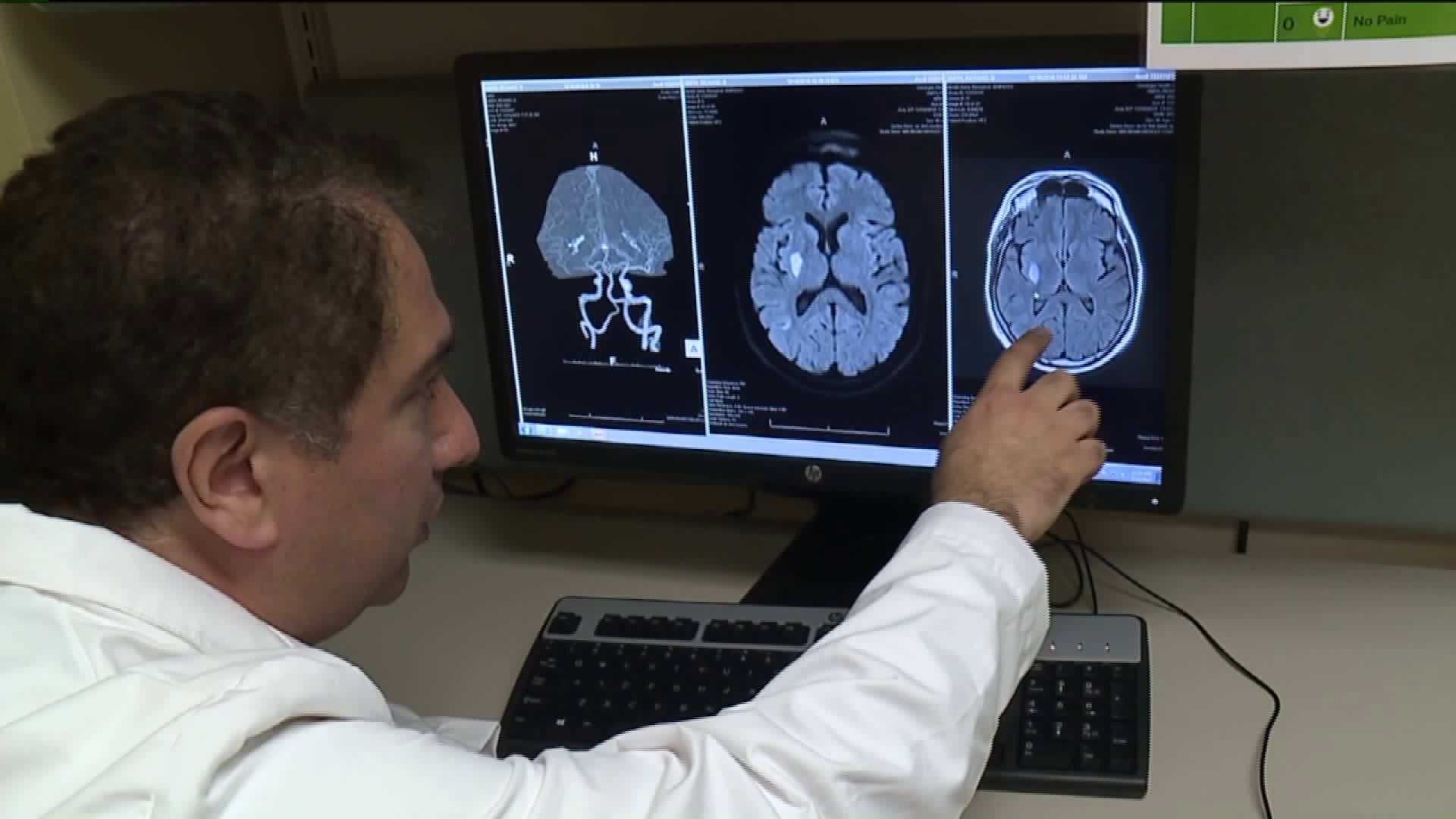FORTY FORT -- The month of May is known as American Stroke Month, and this week we are going to be talking a lot about strokes.
We are speaking with a couple whose life has been turned upside down by a stroke and with a doctor who is heading a new clinic at Geisinger meant to treat them.
Luke and Heather Harrison have been married for 19 years, together for 24, but for nearly the last four years, life has been different for the couple from Forty Fort in Luzerne County.
In July of 2013, Heather had a stroke.
"I'm young and I had a stroke. I always thought people who were 70 and 80 had strokes," said Heather, who is 44.
Heather was warned she was at risk: she had high blood pressure, was a Type 2 diabetic, and smoked cigarettes. She'd felt sick to her stomach one night, and was dizzy the next morning.
"When I felt that dizziness, I sat on the tub. Note to self: that is not a good idea because I passed out, fell back into the tub. Thankfully, there was no water in it."
Her daughter found her and called 911.
Dr. Ramin Zand did not treat Heather Harrison. He is a vascular neurologist at Geisinger Wyoming Valley Medical Center near Wilkes-Barre, but he agreed to show us an example of what a stroke looks like.
Dr. Zand is the head of the new TIA Clinic at Geisinger, one of only a few in the country.
TIA stands for transient ischemic attack. It's often referred to as a mini-stroke.
"From our standpoint, TIA is almost equal to a stroke," said Dr. Zand.
The difference is that with a TIA, there's typically no permanent damage to the brain. The symptoms last only a few minutes.
But if you have one, your chance of having a stroke is much higher.
"It means that you have a condition, the first one was transient so you recover, but the second one could cause permanent damage to your brain," Dr. Zand added.
Luke Harrison says his wife's brain won't ever be the same and she will always have weakness on one side of her body.
He says everything has changed since her stroke.
"Everything, everything, I'm her complete caregiver, but she's coming along. I had to take over everything."
Luke wants other caregivers to know they shouldn't be afraid to ask for help.
"There's a lot of help out there for you, but you got to go to find it. It's not going to come to you."
Luke Harrison is part of Geisinger's Stroke Symposium 2017, which takes place Wednesday at Mohegan Sun Pocono. It's a no-cost, half-day program that is meant specifically for caregivers of stroke patients.

